Die Welle (The Wave) is a 2008 German sociopolitical thriller film directed by Dennis Gansel and starring Jürgen Vogel, Frederick Lau, Jennifer Ulrich and Max Riemelt in the leads. It is based on Ron Jones' social experiment The Third Wave and Todd Strasser's novel, The Wave. The film was produced by Christian Becker for Rat Pack Filmproduktion. It was successful in German cinemas, and after ten weeks, 2.3 million people had watched it.
| The Wave | |
|---|---|
Theatrical release poster | |
| Directed by | Dennis Gansel |
| Produced by | Rat Pack Filmproduktion Christian Becker |
| Screenplay by | Dennis Gansel Peter Thorwarth Ron Jones (novel & diary) |
| Based on | The Wave by Morton Rhue |
| Starring | Jürgen Vogel Frederick Lau Max Riemelt Jennifer Ulrich |
| Music by | Heiko Maile |
| Distributed by | Constantin Film |
Release date |
|
Running time | 107 minutes |
| Country | Germany |
| Language | German |
| Budget | €5 million |
| Box office | €23,679,136 |
Screenplay
A school teacher of history, Rainer Wenger, is forced to teach a class on autocracy, despite being an anarchist. When his students, third generation after the Second World War, do not believe that a dictatorship could be established in modern Germany, he starts an experiment to demonstrate how easily the masses can be manipulated. He begins by demanding that all students address him as "Herr Wenger", as opposed to Rainer, and places students with poor grades beside students with good grades—purportedly so they can learn from one another and become better as a whole. When speaking, they must stand and give short, direct answers. Wenger shows his students the effect of marching together in the same rhythm, motivating them by suggesting that they could really annoy the anarchy class, which is below them. Wenger suggests a uniform, to remove class distinction and further unite the group. Mona argues it will remove individuality, as well. Karo shows up to class without the uniform and is ostracized. The students decide among themselves they need a name, deciding on "Die Welle" (The Wave). Karo suggests another name, which ends up with one single vote cast by herself.
The group is shown to grow closer and the bully Simon is shown to reform, protecting a classmate from other bullies. He also creates a distinctive salute for the group. Karo and Mona protest the actions of the group, and Mona, disgusted with how her classmates are embracing fascism, leaves the project group. The other classmates don't see her departure as a connection with fascism and continue attending. The members of The Wave begin spray-painting their logo around town at night, having parties where only Wave members are allowed to attend, and ostracizing and tormenting anyone not in their group. Tim becomes very attached to the group, having finally become an accepted member of a social group. He burns his brand clothes, after a discussion about how large corporations do not take responsibility for their actions.
A pair of punks start a fight with Tim, but he is saved by Bomber and Sinan and starts to bond with them. When Tim and his group of new friends are confronted by a group of angry punks (including those that Tim faced previously), Tim pulls a Walther PP pistol, causing them to back down. Tim explains to his shocked friends that the pistol only fires blanks. Tim later shows up at Wenger's house, offering to be his bodyguard. Wenger declines his offer but invites Tim in for dinner. This puts further strain on Wenger's already tense relationship with his wife, Anke, who thinks his experiment has gone too far. Wenger finally ejects Tim from his house, only to find in the morning that the boy had slept on his doorstep. Anke is upset upon learning of this, and tells Wenger to stop the experiment immediately. He accuses her of being jealous and insults her dependency on pills to be able to show up to work. Shocked, she leaves him, saying The Wave has made him a bad person.
Karo continues her opposition to The Wave, earning the anger of many in the group, who ask her boyfriend, Marco, to do something about it. A water polo competition is due that day, and Wenger asks The Wave to show up in support of the team. Karo and Mona, denied entry to the competition by members of The Wave, sneak in another way to distribute anti-Wave fliers. Members of The Wave notice this and scramble to retrieve the papers before anybody reads them. In the chaos, Sinan starts a fight with an opposing team member, the two almost drowning each other. Members of The Wave in the stands begin to violently shove one another. After the match, Marco confronts Karo and accuses her of causing the fight. She replies that The Wave has brainwashed him completely, and he slaps Karo, causing her to get a nosebleed. Unsettled by his own behavior, Marco approaches Wenger and asks him to stop the project. Wenger agrees and calls a meeting of all The Wave members for the following day in the school's auditorium.
Once in the meeting, Wenger has the doors locked and begins whipping the students into a fervor. When Marco protests, Wenger calls him a traitor and orders the students to bring him to the stage for punishment. Wenger uses this to force the students to see how extreme the Wave has become. Wenger declares he is disbanding the Wave, but Dennis argues that they should try to salvage the good parts of the movement. Wenger points out that there is no way to remove the negative elements from fascism. Tim draws a gun and refuses to accept the Wave is over, fearing that he will once more be lonely and states that the Wave is his life. When Bomber says the gun only fires blanks, Tim shoots him to prove the pistol has live rounds. Wenger tries to calm Tim, who is now aiming the gun at him. When Tim demands why he shouldn't shoot Wenger too, Wenger says that without him, there would be no one to lead The Wave. Tim abruptly shoots himself instead, preferring to commit suicide rather than go on living without The Wave. Wenger cradles his corpse and looks helplessly at his now traumatized students. The film ends with Wenger being arrested by the police and driven away, Bomber being taken away to the hospital, and Marco and Karo being re-united. The final images show Wenger in the back of a police car, staring into the camera overcome with distress.
The Wave is not the only movie to convert a social experiment conducted in the United States into a fictionalized plot. The Stanford prison experiment of 1971 was adapted for the 2001 production Das Experiment by Oliver Hirschbiegel, and the 2015 production directed by Kyle Patrick Alvarez, The Stanford Prison Experiment. Gansel's Wave is based on teacher Ron Jones's "Third Wave" experiment, which took place at a Californian school in 1967. Because his students did not understand how something like national socialism could even happen, he founded a totalitarian, strictly-organized "movement" with harsh punishments that was led by him autocratically. The intricate sense of community led to a wave of enthusiasm not only from his own students, but also from students from other classes who joined the program later. Jones later admitted to having enjoyed having his students as followers. To eliminate the upcoming momentum, Jones aborted the project on the fifth day and showed the students the parallels towards the Nazi youth movements.
In 1976, Jones published a narrative based on those experiences titled "The Third Wave", which was made into a television movie of the same title in 1981. In the same year, Morton Rhue published his book "The Wave", which was published in Germany in 1984 and has since enjoyed great success as a school literature text. It has sold a total of over 2.5 million copies. Furthermore, the 1981 movie is available at almost all public media centers. The story has also influenced many plays and role plays worldwide.
The screenplay is based on an article written by Ron Jones in which he talks about the experiment and how he remembers it. The rights to the story which belonged to Sony were given over to Dennis Gansel for the production of a German movie. As a consequence, Morton Rhue whose novel popularized the material in Germany and the publisher Ravensburg did not receive direct revenues from the film project. Gansel was working on the book for one year until he asked Peter Thorwarth to join him as a co-author. The screenplay moves the experiment, which was carried out in California in the 1960s, to present day Germany. The specific location is never mentioned explicitly as it stands for Germany as a whole. Gansel explained that he did not intend to reenact Jones’ experiment, but rather show how it would be carried out in present day Germany. He said the movie is not an adaption and that he changed characters, dialogues as well as the beginning and ending of the movie. This also includes subsidiary aspects such as the football team which was turned into a water polo team in the German version whose coach, as opposed to the original, is the teacher himself. The major difference, however, concerns the physical violence and the bloody end which became part of the movie. Nonetheless, Gansel claimed in an interview that it was extremely important to him to ensure that his movie would not differ as much from the experiment as Rhue’s book. Thereby he described Jones, who supported the film project as a counselor, as a "living certificate of authenticity“ and that the ending was inspired by the Emsdetten school shooting. He claimed that Jones does not like the way the characters in Rhue’s novel are depicted. The former teacher commented that Gansel’s movie gave an "incredibly convincing“ account of the actual experiment.
According to Gansel, representatives of the Bavarian film-funding agency which were initially inquired to fund the film project declined because they compared it to Rhue’s novel. Furthermore, they criticized that the teacher lacked a clear anti-authoritarian position in the submitted script. The entire project was jeopardized and the first film-funding agency to grant financial aid was the Medienboard Berlin-Brandenburg. Afterwards, the German Federal Film Board (FFA) and the German Federal Film Fund (DFFF) as well as other co-producers decided to subsidize the project. Constantin Film also became one of the sponsors and further managed the film’s distribution. The overall budget of the movie amounts to 4,5 million euros and the movie was shot within 38 days.
Gansel’s concept
According to Dennis Gansel, German students have grown tired of the topic concerning the Third Reich. Gansel himself had felt an oversaturation during his schooldays and had developed an emotional connection to this chapter of German history only after watching the film Schindler's List. One difference between the experiment conducted at the time in the United States and today’s Germany he saw in the fact that the American students had asked themselves quite horrified how there could even exist something like the concentration camps. His film, however, was made on the premise that people felt immune to the possibility of a repetition of history as a result of the intensive study of National Socialism and its mechanisms. “Therein lies the great danger. It is an interesting fact that we always believe that what happens to others would never happen to us. We blame others, for example the less educated or the East Germans etc. However, in the Third Reich the house caretaker was just as fascinated by the movement as was the intellectual.”
The small town the movie is set in is prosperous and does not show any salient social or economic problems and the teacher practices a liberal lifestyle. Gansel is convinced that the plot gains a broader psychological validity by the choice of such a location. “Everyone thinks they would have been Anne Franks and Sophie Scholls in Nazi Germany. In my opinion this is complete nonsense. I would say that biographies of resistance rather originate in coincidences,” claims Gansel. He then explains that, for example, Karo’s political awareness and opposition arise out of vanity: she does not like the white shirt. In the past Gansel had been sure that he would have been part of the resistance but while working on The Wave he realized how “non-politically” the conversion of people took place. He remarks that every human being has the need for belonging to a group.
He says he does not believe that films are capable of having a greater political impact on the viewers and that a film can only influence people who were already sensitized to the topic presented. In his opinion films can at best stimulate discussions, but to be able to do that they have to be really entertaining. “In Germany there has always existed the great misunderstanding that politics in the world of cinema were synonymous with boredom,” says Gansel. He claims that in between high-brow cinema, as films by Christian Petzold, and the entertaining comedies by Til Schweiger there was a vast gap in Germany, which urgently had to be filled. He made the film in a way that should have a “seductive effect” on the viewers to make them interested in The Wave and by doing so show the powerful attraction such a movement can have. He chose Jürgen Vogel as the leading actor because he wanted someone he himself would have liked to have as a teacher, for Vogel brought with him real life experience and a certain kind of authority. In Gansel’s own schooldays it had been these kind of teachers whom he had trusted the most. Gansel, whose grandfather had been a Wehrmacht officer, also announced that this film would be the first and last one concerning the topic of the Third Reich in his career as a director.
Formal realisation
Teacher Wenger's casual manner at the beginning of the film contributes to the expectat
Watch movie The Wave 2008 Film online on Amazon
Watch movie The Wave 2008 Film online
Watch The Movie On PrimeCoolie Full HD Movie Download
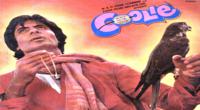
Sapnay Full HD Movie Download
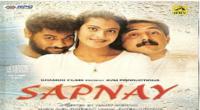
Aasoo Bane Angaarey Full HD Movie Download

Naache Nagin Gali Gali Full HD Movie Download

Jyoti Bane Jwala Full HD Movie Download

Jung (2000) Full HD Movie Download
.jpg)
Sindhu Bhairavi Full HD Movie Download
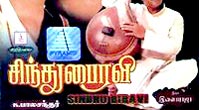
Mera Pind My Home Full HD Movie Download
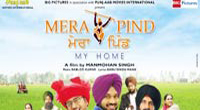
Victoria House Full HD Movie Download
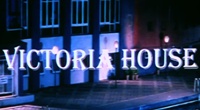
Mylari Full HD Movie Download

Sasural Full HD Movie Download
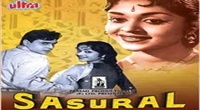
Summer School Full HD Movie Download
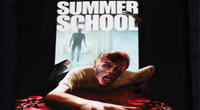
Amma Durgamma Full HD Movie Download
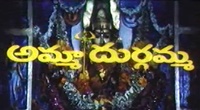
Meri Badle Ki Aag Full HD Movie Download
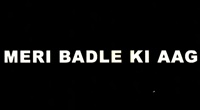
Sruthilayalu Full HD Movie Download

Shiva-The Power Full HD Movie Download
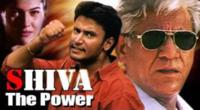
Aruvadai Naal Full HD Movie Download

Kamini Full HD Movie Download

Donga Mogudu Full HD Movie Download

Muddhai Full HD Movie Download

Indhu Full HD Movie Download

Download latest Movie from bollywood
- 1> baaghi 3
- 2> THE SKY IS PINK MOVIE FULL STORY AND REVIEW
- 3> Luka Chuppi
- 4> TO ALL THE BOYS I’VE LOVED BEFORE
- 5> Kabir Singh
- 6> Street Dancer 3D
- 7> Simmba
- 8> Gone Girl
- 9> The Girl Who Lived
- 10> Ludo
- 11> DILWALE DULHANIA LE JAYENGE
- 12> GUILTY
- 13> The Godfather
- 14> Adventures of Rusty
- 15> Sooryavanshi
- 16> Satyameva Jayate 2
- 17> Thappad
- 18> Bhool Bhulaiyaa 2
- 19> KGFChapter 2
- 20> Mardaani 2
- 21> Pinjar
- 22> Shivaji maharaj
- 23> Ek Villian 2
- 24> Hungama 2
- 25> Divergent
- 26> Mumbai Saga
- 27> The Internship
- 28> HIT (telugu)
- 29> Panga
- 30> The perfect date
- 31> 16 December
- 32> Gopala Gopala (Telugu)
- 33> Brahmastra
- 34> Gangubai Kathiawadi
- 35> Manmadhudu
- 36> Nenu local
- 37> Mahanati
- 38> Shatamanam bavathi
- 39> Lagaan
- 40> After
- 41> MOM
- 42> Shamshera
- 43> Raguvaran BTech
- 44> Khakee
- 45> The villain
- 46> OM
- 47> Mr. perfect
- 48> Bueatifull mind
- 49> Hichki
- 50> Gabbar Singh
- 51> Jogi
- 52> Before Sunrise
- 53> Before Sunset
- 54> Before Midnight
- 55> The Big Bull
- 56> Top Gun: Maverick
- 57> The Purge
- 58> The Sky is Pink
- 59> Laxmmi Bomb
- 60> Sadak 2
- 61> Sufna
- 62> Prithviraj
- 63> PK
- 64> Coolie No 1(2020)
- 65> Black Widow
- 66> Dear Zindagi
- 67> Dil Bechara
- 68> PHIR HERA PHERI
- 69> WAR
- 70> Dostana
- 71> RRR: Roudram Ranam Rudhiram
- 72> Maidan
- 73> Dabbang 3
- 74> Chhalaang
- 75> life as we know it
- 76> SherShaah
- 77> Sandeep Aur Pinky Faraar
- 78> Event Horizon
- 79> 83
- 80> Radhe: Your Most Wanted Bhai
- 81> Gunjan Saxena: The Kargil Girl
- 82> Mr India
- 83> Vivah
- 84> Anokha Bandhan
- 85> Ghost
- 86> Bhoot: Part One - The Haunted Ship
- 87> Haseen Dilruba
- 88> Laal Singh Chaddha
- 89> Qismat
- 90> Rajput
- 91> Drive
- 92> Dil Chahta Hai
- 93> Dil Ki Baazi
- 94> Dil Ka Rishta
- 95> Teesri Manzil
- 96> Dil
- 97> Love Aaj Kal
- 98> Khaali Peeli
- 99> Bunty Aur Babli 2
- 100> Atrangi Re
- 101> Gulabo Sitabo
- 102> Jodi
- 103> Suraj Pe Mangal Bhari
- 104> Deewana
- 105> Attack
- 106> Sardar Udham Singh
- 107> Toofan
- 108> THE LOVEBIRDS
- 109> Jersey
- 110> Ginny Weds Sunny
- 111> Thalaivi
- 112> Shiddat
- 113> Angels vs Zombies
- 114> Koi Mil Gya
- 115> Thank God
- 116> Bhuj: The Pride of India
- 117> Hum Aapke Hain Kaun
- 118> The Platform
- 119> Bird Box
- 120> Roohi Afzana
- 121> Torbaaz
- 122> Nikamma
- 123> World War Z
- 124> Extraction
- 125> Train to Busan
- 126> Life of Pi
- 127> SHAADI MEIN JROOR AANA
- 128> Himmat Aur Mehnat
- 129> To All The Boys: P.S. I Still Love You
- 130> Mimi
- 131> Good Newwz
- 132> Shubh Mangal Zyada Saavdhan
- 133> Raabta
- 134> Harry Potter and the Philosopher's Stone
- 135> Harry Potter and the Chamber of Secrets
- 136> Chhapaak
- 137> War of the Worlds
- 138> Harry Potter and the Prisoner of Azkaban
- 139> Harry Potter and the Goblet of Fire
- 140> MURDER MYSTERY
- 141> Shakuntala Devi
- 142> Bachchan Pandey
- 143> Jayeshbhai Jordar
- 144> Sheer Qorma
- 145> Saina
- 146> 'O' Pushpa I hate tears
- 147> Kedarnath
- 148> MS Dhoni The Untold Story
- 149> Chhichhore
- 150> Badhaai Ho
- 151> Unstoppable
- 152> Oz the Great And Powerful
- 153> The Girl on the Train
- 154> Haathi Mere Saathi 2020
- 155> The Conjuring: The Devil Made Me Do It
- 156> Gandhi Se Pehle Gandhi
- 157> The Song of Scorpions
- 158> Srimanthudu
- 159> Hello Guru Prema Kosame
- 160> Beauty and The Beast
- 161> Black Panther
- 162> Charlie and the Chocolate Factory
- 163> Bole Chudiyan
- 164> Fidaa
- 165> Duvvada Jagannadham
- 166> Bruce Lee: The Fighter
- 167> Hyper
- 168> Yaara
- 169> Red (2020)
- 170> Shivam
- 171> That Is Mahalakshmi
- 172> Nishabdham
- 173> Aashram 2020 web series
- 174> Laxmii
- 175> Mismatched
- 176> STUDENT OF THE YEAR 2
- 177> NAIL POLISH
- 178> Ramprasad Ki Tehrvi
- 179> KAAGAZ
- 180> 12 o Clock
- 181> The Power
- 182> bolo hau
- 183> Tribhanga
- 184> JAMUN
- 185> Madam Chief Minister
- 186> Maasaab
- 187> Aadhaar
- 188> Tanhaji
- 189> Bhaagi 3
- 190> Bhootnath
- 191> MALANG
- 192> Jai Mummy Di
- 193> Haathi Mere Saathi 2021
- 194> Shakeela
- 195> Unpaused
- 196> Annayya
- 197> Vamsoddharakudu
- 198> Mrugaraju
- 199> Narasimha Naidu
- 200> Sankranti
- 201> Manasu Maata Vinadhu
- 202> Anjaane
- 203> Apaharan
- 204> Bachke Rehna Re Baba
- 205> Bewafaa
- 206> Roohi
- 207> Radhe
- 208> Zindagi Khoobsoorat Hai
- 209> Yeh Mohabbat Hai
- 210> Yeh Kya Ho Raha Hai?
- 211> The Tomorrow War
- 212> DehradunDiary
- 213> Meri Shaadi Karaoo
- 214> Matruu Ki Bijlee Ka Mandola
- 215> No One Killed Jesica
- 216> Aag Ka Goola
- 217> Eight Million Dollars
- 218> Three Hundred
- 219> Cats and Dog
- 220> Decoy
- 221> Gold Rush
- 222> You Have Got Mail
- 223> Final Destination three
- 224> Tofan
- 225> Jungle
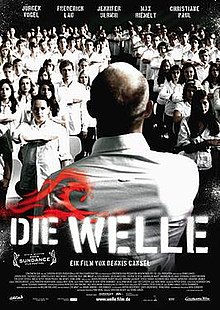 Story of movie The Wave 2008 Film :
Story of movie The Wave 2008 Film : 